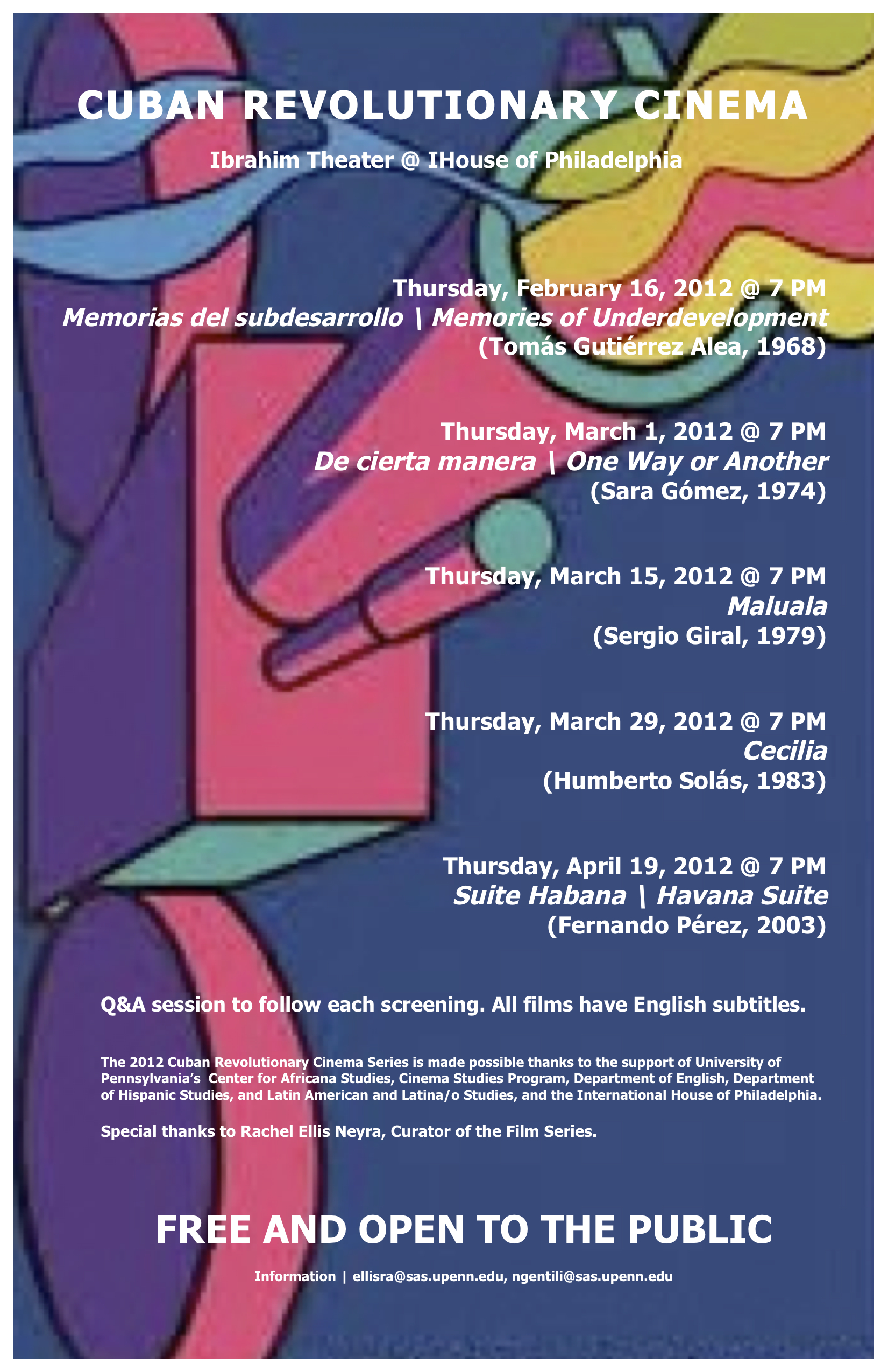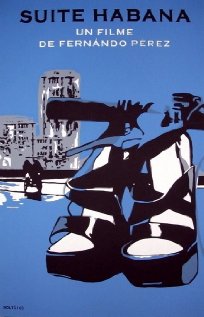Event
Suite Habana | Havana Suite
(Fernando Pérez, 2003)
Director Fernando Pérez’s cinematic homage to the city of Havana and its inhabitants, Suite Habana (2003), resists the reading of Cuba as a place that is stuck in time. In the course of one day and one night, the documentary shows figures in constant if also conflictive motion. Pistons pump in factory machines that coincide with the walk of an old maninera in Habana vieja, selling peanuts to get by. Legs turn the pedals of a bicycle, hands advance food items down an assembly line, arms tighten the giant bolts of the tracks of the railroad – this film is a collection of metonyms, of members, parts of a fragmented dream, for some still vivid, but for others, the nation-state has lost all credit. A film filled with sounds and cuts of spoken words, Suite Habana relays no audible dialogue. What does a film of no audible dialogue visually suggest? The mechanics of life at its most basic overdetermine all talk, or, at least, the filmic desire to relay that talk to the viewer. But one wonders, is this because the language of the documentary’s subjects does not matter? Or instead, does this emphasis on the rituals of survival, rather than on audible voice, drive the following point: that the state and the staid narrative of the Revolution find themselves on one side of an interstice, and the nation on the other. Not a silence, but an intense incongruity of needs, concessions, foregone demands, and delimited hopes are activated and actively ignored between them.
Suite Habana will be introduced by Prof. Román de la Campa, Edwin B. and Lenore R. Williams Professor of Romance Languages at the University of Pennsylvania. Prof. de la Campa has published prolifically on Latin American, Caribbean, and Cuban Literature and Culture, and Literary Theory. Among his books are Latin Americanism, Cuba on My Mind: Journeys to a Severed Nation, and the forthcoming, Ensayos de Otra América.
The 2012 Cuban Revolutionary Cinema Series is made possible thanks to the support of University of Pennsylvania's Center for Africana Studies, Cinema Studies Program, Department of English, Department of Hispanic Studies, and Latin American and Latina/o Studies, and the International House of Philadelphia.
Special thanks: Rachel Ellis Neyra, Curator of the Film Series.


